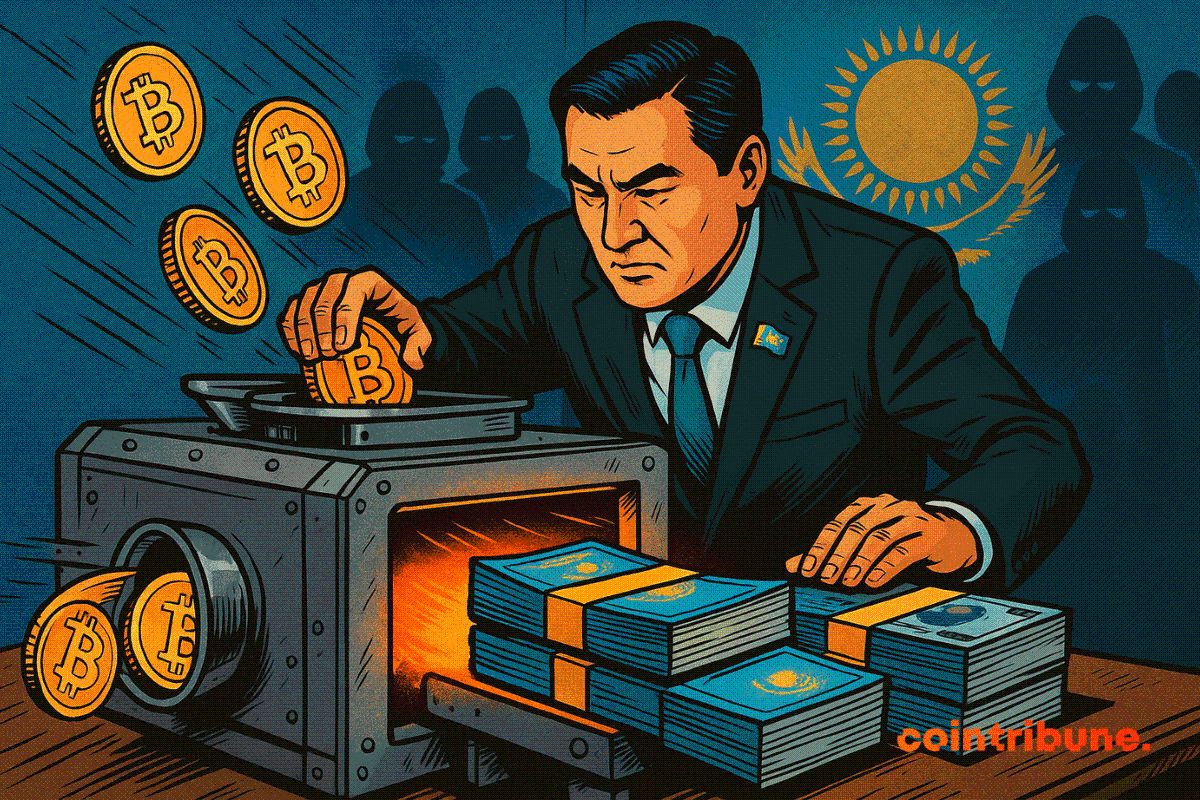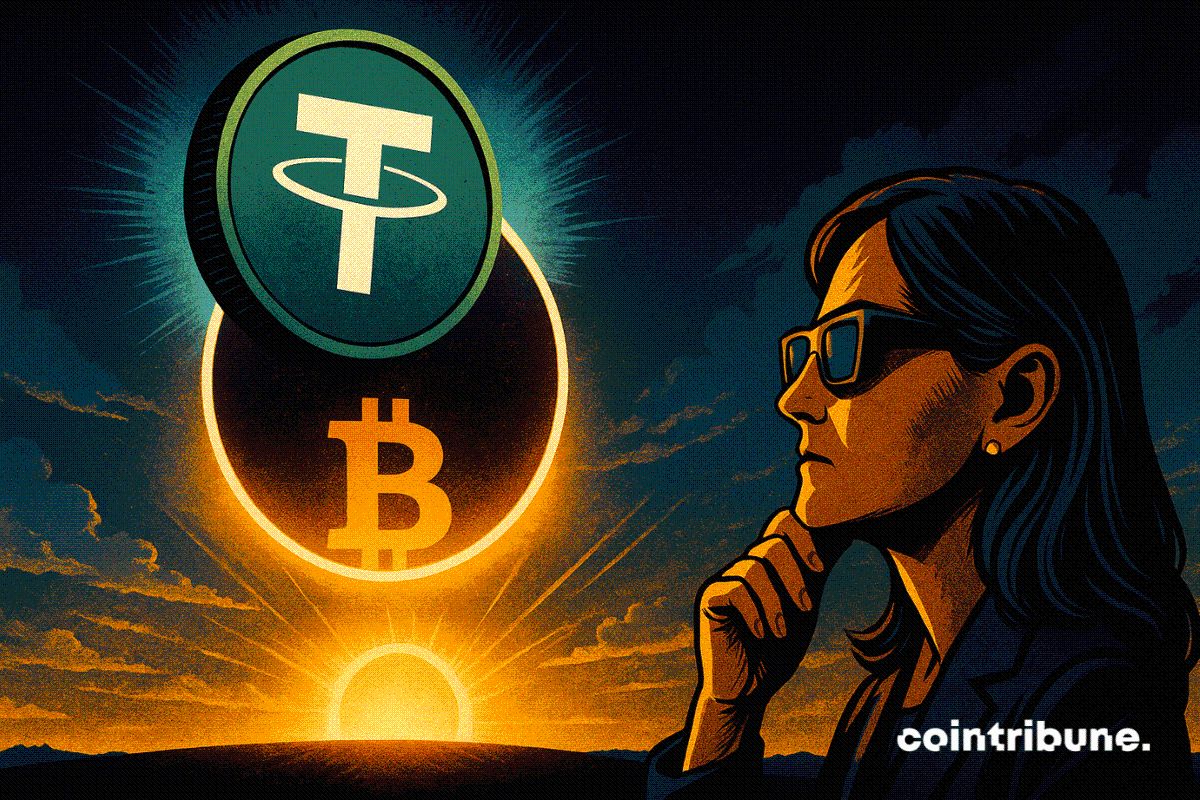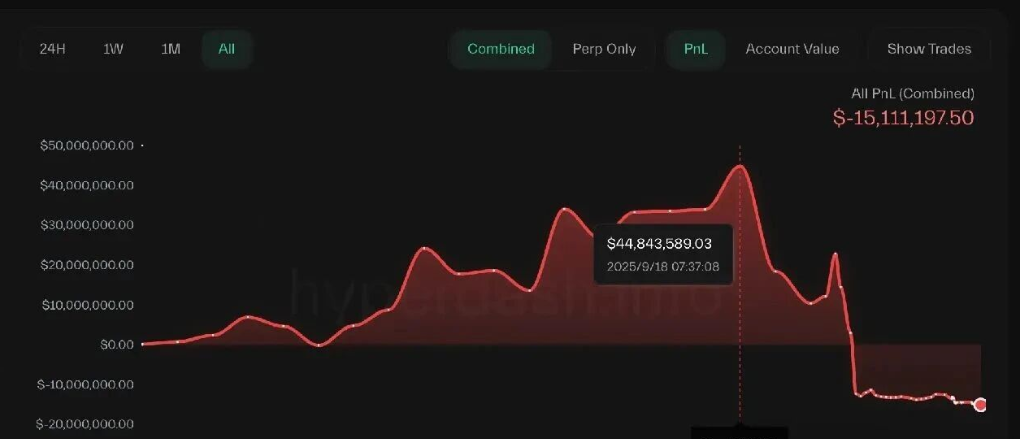The CFTC's Leadership Vacuum and Its Impact on Crypto Regulation
- CFTC faces regulatory limbo with only one confirmed commissioner, delaying crypto market oversight and creating compliance uncertainty. - Brian Quintenz's controversial nomination, linked to CFTC-regulated Kalshi, risks politicizing crypto regulation and deepening enforcement gaps. - Investors face dual risks: delayed rulemaking and enforcement weaknesses, but also opportunities for DeFi firms and RegTech providers in regulatory gray areas. - Bipartisan fragmentation threatens policy divergence, while st
The Commodity Futures Trading Commission (CFTC) is at a crossroads. As of August 2025, the agency operates with only one confirmed commissioner—Acting Chair Caroline Pham—following the departure of Democratic Commissioner Kristin Johnson on September 3. This leadership vacuum, compounded by the stalled confirmation of President Donald Trump's nominee, Brian Quintenz, has created a regulatory limbo that could reshape the trajectory of U.S. crypto markets. For investors, the implications are twofold: heightened risk from delayed oversight and untapped opportunities for firms navigating the ambiguity.
Regulatory Stagnation and the CFTC's Shifting Role
The CFTC's traditional role in overseeing derivatives markets has expanded into the crypto sphere, with the agency now poised to play a central role in regulating digital assets under proposed legislation like the CLARITY Act. However, the agency's current structure—a single commissioner with no bipartisan balance—has stalled critical initiatives. Johnson, the last Democratic voice on the commission, emphasized the need for increased resources and technological modernization to address the complexities of crypto markets. Her exit, coupled with Pham's planned departure once Quintenz is confirmed, leaves the CFTC in a precarious position.
Quintenz's nomination has been mired in controversy. Internal emails revealed potential conflicts of interest tied to his board role at Kalshi, a CFTC-regulated prediction market, and his stock holdings in the company. Critics, including crypto billionaire Tyler Winklevoss and the American Gaming Association, have called for a deeper review of his qualifications. The White House's insistence on expediting his confirmation, despite these concerns, highlights the political stakes in positioning the U.S. as the “crypto capital of the world.”
Investment Risks in a Regulatory Vacuum
The CFTC's leadership instability introduces several risks for investors:
1. Delayed Rulemaking: With only one commissioner, the agency's ability to collaborate with the SEC on crypto regulations is hampered. This delay could prolong uncertainty for firms seeking clarity on compliance requirements, particularly in areas like stablecoin oversight and spot market trading.
2. Enforcement Gaps: The CFTC's enforcement division has seen a 15% reduction in staff since 2021. A leadership vacuum may exacerbate this, reducing the agency's capacity to address fraud or market manipulation in fast-moving crypto markets.
3. Policy Fragmentation: The absence of a bipartisan commission increases the likelihood of regulatory fragmentation, as the remaining Republican leadership may prioritize innovation over consumer protection. This could create divergent standards across states and sectors, complicating compliance for multi-jurisdictional firms.
For example, prediction markets like Kalshi—regulated by the CFTC—face a precarious future. While Quintenz's potential confirmation could accelerate their adoption, the gaming industry's opposition and ethical concerns over his nomination may slow progress. Investors in prediction market platforms must weigh the upside of regulatory acceptance against the risk of prolonged scrutiny.
Opportunities in Uncertainty
Regulatory ambiguity, however, is not inherently a liability. It creates openings for firms that can navigate the gray areas of policy development:
- Innovation-First Firms: Companies leveraging decentralized finance (DeFi) or blockchain-based derivatives may benefit from a regulatory environment that prioritizes growth over immediate oversight. For instance, firms like dYdX or Deribit, which operate in semi-regulated spaces, could gain market share as the CFTC delays formal rules.
- Compliance-as-a-Service Providers: As the CFTC eventually ramps up oversight, demand for compliance tools and consulting services will surge. Firms like Chainalysis or Elliptic, which offer blockchain analytics and regulatory tech (RegTech), are well-positioned to capitalize on this trend.
- Traditional Financial Institutions: Banks and asset managers entering the crypto space may find a competitive edge in a fragmented regulatory landscape. JPMorgan's recent launch of a crypto custody service, for example, aligns with the CFTC's focus on institutional adoption, even as regulatory clarity lags.
Strategic Considerations for Investors
For investors, the key is to balance short-term risks with long-term opportunities. Here's how to approach the CFTC's evolving role:
1. Diversify Exposure: Allocate capital to both crypto-native firms and traditional financial institutions . This mitigates the risk of regulatory shifts while capturing growth in hybrid markets.
2. Monitor Policy Signals: Track developments in the CLARITY Act and the CFTC's enforcement priorities. A shift toward fraud-focused regulation, as outlined by Pham, could favor firms with strong compliance frameworks.
3. Hedge Against Volatility: Use derivatives or ETFs to hedge against crypto market swings. The ProShares Bitcoin Strategy ETF (BITO) or inverse crypto ETFs can provide downside protection during regulatory uncertainty.
Conclusion
The CFTC's leadership vacuum is a microcosm of the broader tension between innovation and oversight in the digital asset space. While delays in confirming Quintenz and the departure of Johnson create near-term risks, they also open windows for firms that can adapt to regulatory ambiguity. Investors who prioritize agility—leveraging compliance tools, diversifying portfolios, and staying attuned to policy shifts—will be best positioned to navigate this evolving landscape. As the CFTC's role in crypto markets crystallizes, the winners will be those who see uncertainty not as a barrier, but as an opportunity to redefine the future of finance.
Disclaimer: The content of this article solely reflects the author's opinion and does not represent the platform in any capacity. This article is not intended to serve as a reference for making investment decisions.
You may also like
Google Finance Integrates AI and Prediction Market Data for Smarter Insights

Kazakhstan launches a billion-dollar crypto fund with seized assets

Ripple Avoids Wall Street After SEC Victory

The Story of Brother Machi's "Going to Zero": Just Be Happy
